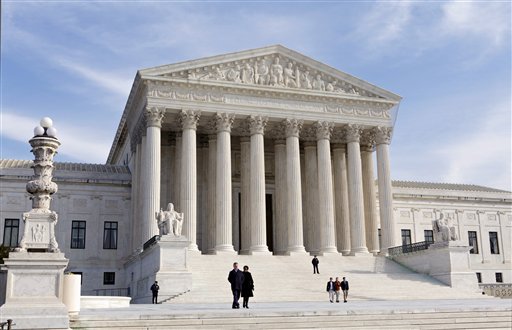Nearly two weeks ago, the United States Supreme Court ruled, in a closely divided case — McCutcheon v. FEC — that political donors have the right to give a certain amount of money to as many candidates as they like. Previously, federal law had prevented a donor from providing the maximum donation ($2,600 for a candidate, $5,000 to a political action committee and $32,400 to a political party) to more than roughly 19 candidates or 15 PACs. Now, those donors can give those aforementioned individual limits to as many candidates, committees and interest groups as they wish.
The 5-4 decision rested upon the assertion that, under the First Amendment, money is tantamount to speech. Using that assumption, Chief Justice John Roberts wrote that, despite its unpopularity, the right to give money to as many politicians as you choose is fundamentally constitutional. Of course, spending money should not be a universal right like worship or speech because not everyone has the pocketbook needed.
“Money in politics may, at times, seem repugnant to some, but so too does much of what the First Amendment vigorously protects,” Roberts wrote in a decision joined by the four other justices nominated by Republican presidents. “If the First Amendment protects flag burning, funeral protests, and Nazi parades — despite the profound offense such spectacles cause — it surely protects political campaign speech despite popular opposition.”
The folly in this reasoning, I believe, does not lie with any unpopularity affiliated with the intersection of politics and money. Rather, it rests upon the harmful assumption that spending one’s money is not legally discernible from speaking one’s mind. Strictly speaking, the Supreme Court has believed, to some extent, that the two are intertwined ever since the first case over campaign finance reform, Buckley v. Valeo, way back in 1976.
However, in the four years since the Citizens United v. FEC case, which first opened the floodgates of attacks against campaign finance by giving corporations and trade unions the unmitigated right to create independent campaign expenditures (a right only the former has extensively taken advantage of), the idea of money being speech has been indelibly imprinted in the American political landscape as it has taken on a whole new meaning.
“[The court’s] conclusion rests upon its own, not a record-based, view of the facts,” said Justice Stephen Breyer, who penned a dissent joined by the three other nominee of Democratic Presidents on the court. “Its legal analysis is faulty.”
Breyer added, “If Citizens United opened a door, today’s decision, we fear, will open a floodgate.” Indeed, the fear over excessive money and corruption —inextricably mixed as they are — in the political process is what prompted a need for these regulations in the first place. In the aftermath of the Watergate scandal, Congress first limited donations in an effort to combat the impropriety they saw in the previous few elections.
The law is supposed to be based on precedent, so, when the court overrules a position it took just 35 years in the past, the assumption is that it is based on a higher moral concept or understanding, such as the spirit of equal protection heralding the Brown v. Board of Education decision that overruled previous cases.
In this case, the supposedly higher concept is that speech is money and vice-versa. And, just as our freedom of speech is, with very few exceptions, absolute, the court decided so should be our freedom to donate politically. Of course, while all citizens are ostensibly affected by free speech rights, the same cannot be said here. Fewer than 5 percent of Americans earn enough money to be affected by any type of aggregate contribution limits. Simply put, both a pauper and an heiress would be affected by the right to burn a draft card or give a speech on a soapbox, but only one could ever be affected by limits on political donations. Everyone has a voice, but only some have money.
The court’s conservative majority has even admitted that unrestrained campaign finance laws are not an ideal situation; Roberts did this much when he compared this quandary to those of white supremacists and the Westboro Baptist Church. The issue here revolves around the belief that money is speech. If that means only the rich are entitled to a functional right to free speech, I am not looking forward to the results.
Horwitz is a government junior from Houston.





















